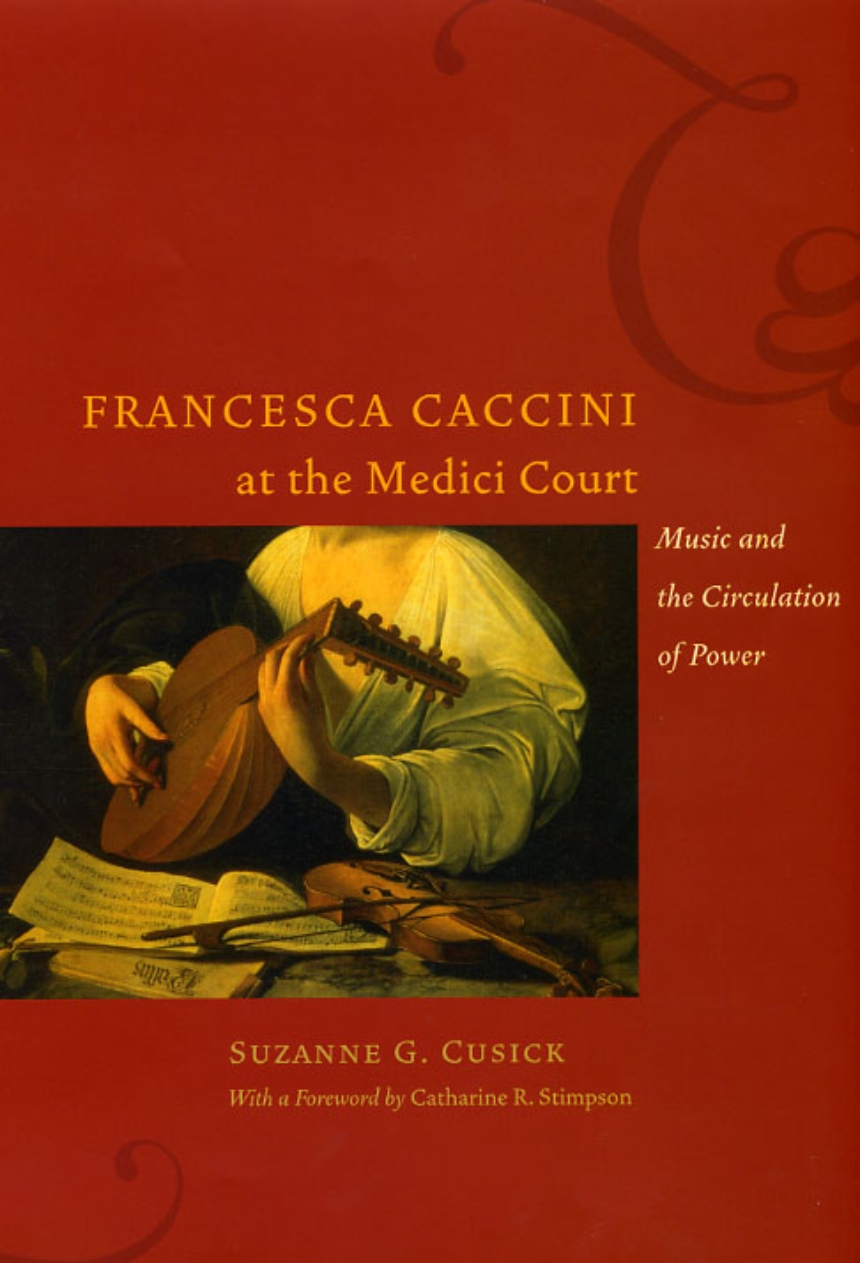Francesca Caccini at the Medici Court
Music and the Circulation of Power
Francesca Caccini at the Medici Court
Music and the Circulation of Power
Suzanne G. Cusick argues that Caccini’s career depended on the usefulness of her talents to the political agenda of Grand Duchess Christine de Lorraine, Tuscany’s de facto regent from 1606 to 1636. Drawing on Classical and feminist theory, Cusick shows how the music Caccini made for the Medici court sustained the culture that enabled Christine’s power, thereby also supporting the sexual and political aims of its women.
In bringing Caccini’s surprising story so vividly to life, Cusick ultimately illuminates how music making functioned in early modern Italy as a significant medium for the circulation of power.
488 pages | 6 halftones, 1 line drawing, 13 tables, 43 musical examples | 7 x 10 | © 2009
History: European History
Music: General Music
Women's Studies:
Reviews
Table of Contents
Foreword by Catharine R. Stimpson
Preface
Acknowledgments
Abbreviations
Note to the Reader
Excerpts from Francesca Caccini’s Compositions on the Accompanying CD
1 Figliuola del celebratissimo Giulio Romano
2 “To win the girl”; or, Francesca as Object of Desire
3 Power, Desire, and Women among Themselves
4 Musica to the Granducato
5 Who Was This Woman?
6 Voice Lessons: Introducing the Primo libro delle musiche
7 Being, Doing, and Allegories of Voice
8 After Arianna
9 La liberazione di Ruggiero amid the Politics of Regency
10 Performance, Musical Design, and Politics in La liberazione di Ruggiero
11 Cataclysms of Widowhood
12 Afterlives
Appendix A. Francesca Caccini’s Known Performances and Compositions
Appendix B. Letters of Francesca Caccini, 1610–1641
Appendix C. Cristoforo Bronzini, Della dignità e nobiltà delle donne, I-Fn, Magl. VIII. 1525/1, 54–77
Notes
Bibliography
IndexAwards
American Musicological Association: AMS Best Book by a Senior Scholar
Shortlist
